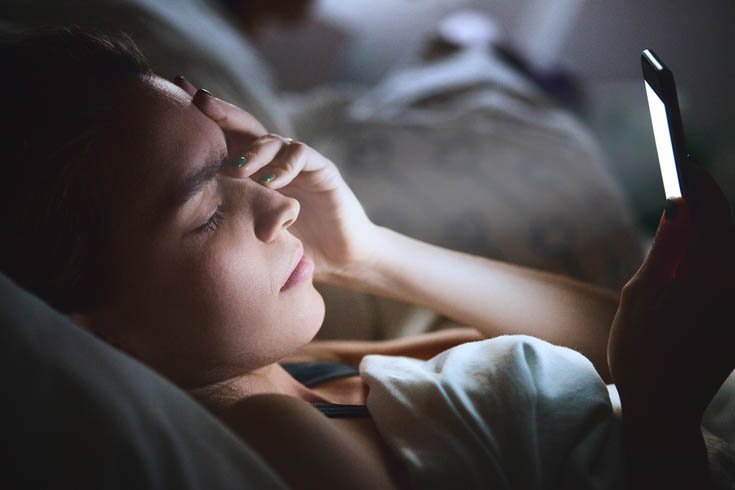How Social Media Can Contribute to Insomnia
It’s hardly breaking news that social media is ubiquitous. At least three-quarters of people use social media, and the results are mixed. Previously unimaginable connections have been made, but that’s only half the story. The relentless pull of notifications, scrolling, and the fear of missing out (FOMO) have altered how we live in this world. For example, studies suggest an association between social media usage and insomnia.
For the record, insomnia is a blanket term for sleep disturbances. You might not be getting enough sleep, and if you do, it’s not quality sleep. The inability to fall and stay asleep can be a major problem in anyone’s life, and social media might play a role.
How Social Media Can Contribute to Insomnia
One connection is obvious. The ever-increasing amount of time people allocate to phone usage — especially teens and young adults — directly correlates to getting to bed later and getting less sleep. If not addressed, this can negatively affect your sleep cycles. Even when you fall asleep, push notifications can wake you unless you’re diligent in powering down your device.
Here are three more social media-related factors that can affect your sleep:
Blue Light Exposure: Like most other devices, your phone emits blue light. This often interferes with our natural sleep-wake cycles. Long-term disruptions cause trouble falling asleep, sleepiness during the day, and ultimately, insomnia. This is due to the negative effect phones have on the production of a vital hormone called melatonin.
FOMO: The aforementioned fear of missing out is very real. A lifetime of scrolling and being in the know is a source of dopamine hits that encourage you to stay connected. The mere thought of turning off your phone to be offline for eight hours can seem impossible. The conscious design of social media — and its artificial intelligence algorithms — is meant to keep our eyes on that little screen. This paradigm can encourage behavior that can accurately be called addictive. People would rather scroll than sleep.
Over-Stimulation: Another aspect of social media’s design is to highlight content that overstimulates us. When we’re that engaged, we fulfill the goals of the businesses that run these platforms. We choose phone time over everything else.
Some Simple Changes Can Make a Big Difference
Regularly Scheduled Tech Breaks
Do not leave this to chance. Work social media breaks into your schedule, and stick to them. You’ll give your brain a break and free up time to engage in activities that are conducive to healthy sleep, e.g., socializing, exercises, being outdoors, and relaxation techniques.
Silence Notifications
There’s no law saying you cannot turn off alerts throughout the day — and certainly in the evening. Only check applications when you decide to. Don’t let the phone dictate where your attention goes.
Give Yourself a Nightly Curfew
No matter what, stop using your devices by a certain time each evening. Create new bedtime rituals like mellow music, reading actual books, conversation with loved ones, warm baths, stretching, and more. No one is saying you have to give up your phone habit. The goal is to create a healthy balance.
Keep Your Distance
If your phone is not in your bedroom, you are far less likely to get up and look for it. You won’t see or hear it; your brain will thank you for that. Change like this will take time to normalize, but just as you conditioned yourself to feel attached to social media, you can re-wire yourself to create some distance — literally and figuratively.
Like any addictive behavior, all of these suggestions can be challenging, but you’re not alone. If this resonates with you, I invite you to reach out about anxiety counseling soon.

